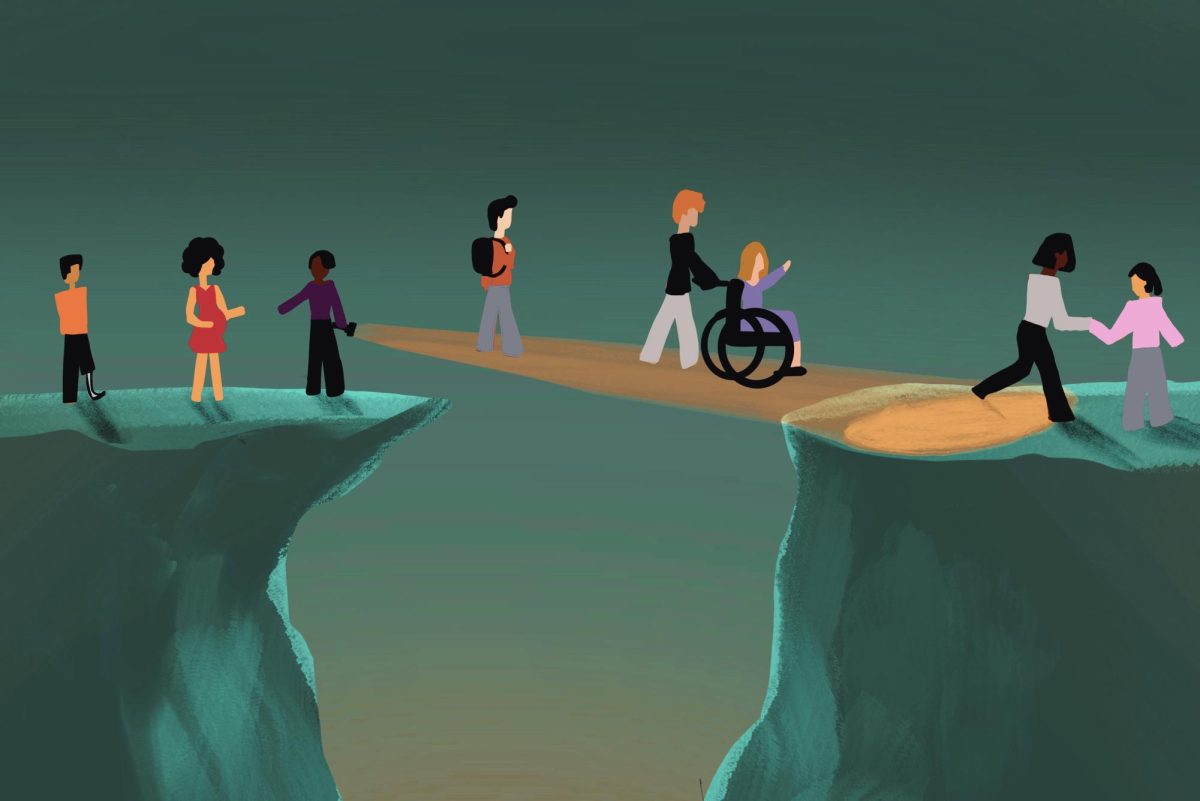In the tumultuous climate of Texas politics, certain legislative actions seem dystopian in how they affect our educational experiences and everyday lives. Senate Bill 17 went into effect on Jan. 1, effectively banning all diversity, equity and inclusion initiatives at public Texas universities. The effects of SB 17 are far-reaching and include the rebranding of specific on-campus organizations, defunding of initiatives and permanent closures of offices.
While the language and forums we utilize to discuss issues of diversity, equity and inclusion in official University-related capacities may change, our continual support for students and community members does not have to.
“Students are doing a lot on their own to try to support each other, and I think that’s really the situation they’ve been put into,” said Karma Chavez, a professor and chair of the Department of Mexican American and Latina/o Studies at UT Austin. “Students who might have more privilege for any number of reasons … should be doing everything they can to support their fellow students on campus by seeing a need and meeting it.”
DEI programs are often implemented to reconcile universities’ exclusionary histories with their progressing ideals. Yet, this bill signals to voters that lawmakers can halt positive progress, even in higher education. SB 17 is highly performative and targeted, serving as a way to change how these universities may appear to the public while hurting the individuals who attend and function within them.
“(SB 17) is imposed from the outside with very little consideration for what people experience at UT,” Chavez said. “There’s nothing about SB 17 that emerged from a real crisis or a real need on UT’s campus.”
Misinterpreting and over-implementing this bill can be problematic and can blur the lines between what is and is not legally required. SB 17 should not impact course instruction, scholarly works or student organizations. Understanding SB 17 in its entirety is one way impacted students can better gain control of this situation.
“One of the big problems that seems to be happening with implementation is what I would call the over-implementation,” said Chavez, who serves on the executive committee of the UT Austin American Association of University Professors. “They have sort of enabled a culture in which people are confused about how far SB 17 actually reaches. … I think that’s really unfortunate because it’s meant that SB 17 has had far more damage than the bill itself would have because of the interpretation.”
Responsibilities once held by the University to support students from marginalized and underrepresented communities now fall to students themselves. For example, the Gender and Sexuality Center closed, and the Women’s Community Center opened in the same space. The center’s former Instagram is now managed by the Gender and Sexuality Collective, a student-run organization.
“The GSC was the ultimate place of belonging,” said Monica Sanchez, a public relations freshman and GSC Student Leadership Committee member. “It gave us community, gave us people to talk to, it gave us people to help. UT is all about resources, and for a lot of people that was their number one resource.”
SB17’s implementation does not reflect the longstanding cultural and social climate on campus. Student-run organizations are the heart of the University and will remain so. While the Multicultural Engagement Center website has been taken down and the Division of Diversity and Community Engagement has rebranded, identity-centric clubs like Rooted Collective and the Student Leadership Committee are adjusting to provide spaces and resources for students.
Furthermore, the Office of the President said in a statement that the University will retain its “commitment to attracting, supporting and retaining exceptional talent across diverse backgrounds and perspectives.”
“We still have work to do as far as clubs and resources being made for people that need them,” Sanchez said. “Let’s not forget about our community in troubled times like this, and keep moving forward.”
DEI has been a fundamental part of the University, and SB 17 is an undeniable step backward in fostering a safe and welcoming campus environment. However, SB 17 does not have to signify an end to a diverse and equitable UT. Instead, it has revealed the power and morale of our student body — one thing we can always count on.
Henningsen is an English and advertising junior from Austin, Texas.















